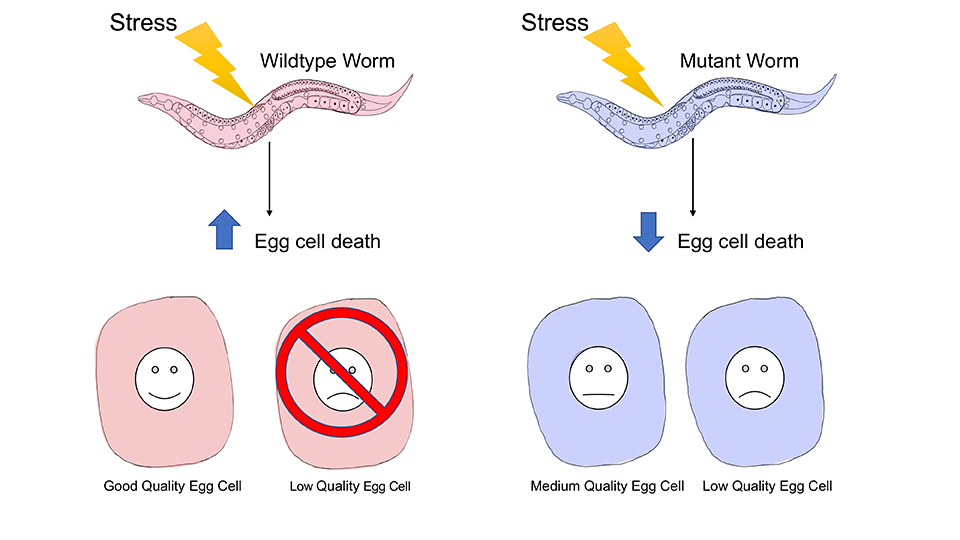CONTACT
Department of Biological Sciences
Wehr Life Sciences, 109
1428 W. Clybourn St.
Milwaukee, WI 53233
(414) 288-7355
SEE AN ISSUE?
If you see an issue with this website, please contact michelle.mynlieff@marquette.edu.
In June 2020, Dr. Lisa Petrella was awarded a three year, $453,000 NIH R15 AREA Award to investigate, “Regulation of germline function and oocyte quality under stress.” 
Our work using the small nematode C. elegans to investigate why increased temperature leads to decreases in fertility. One of the most fundamental aspects of female reproduction is the production of high quality eggs that will result in healthy progeny. There may be a trade-off between the number of eggs a female can produce and the quality of the eggs. In this grant we are investigating how the female reproductive organ chooses when and which eggs to remove by a process called apoptosis to ensure that the remaining eggs are of high quality when the female experiences environmental stress. Specifically, we want to ask if increases in apoptosis can increase fertility when worms by sacrificing the number of eggs produced to lead to an increase in the quality of eggs produced. We predict that animals that cannot make high quality eggs would be at a disadvantage when experiencing small increases in temperature. This could result in many organisms not being able to produce offspring in the face of global climate change.
This NIH R15 project will provide research and training opportunities for undergraduate and graduate students in the lab along with students taking the BIOL 4202: Experimental Genetics class.